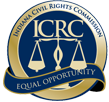INDIANAPOLIS – Akia Haynes, Deputy Director and General Counsel for the Indiana Civil Rights Commission (ICRC), issued a notice of finding against the Gene B. Glick Company for alleged discrimination against the Property Manager of their Jamestown Square Apartments property in Washington, Ind. The charge states there is probable cause to believe that an unlawful discriminatory practice occurred in violation of the Indiana Civil Rights Law (Ind. Code § 22-9, et seq.).
By way of background, the Respondent hired Complainant in 2003 as a Property Manager of its Jamestown Square Apartments property in Washington, Ind. While the Complainant suffered from a condition that was aggravated by prolonged standing and walking, evidence shows she was meeting the Respondent’s legitimate business expectations. This included receiving an overall rating of “meets expectations” on her January 2013 performance evaluation.
However, during two separate site reviews in March and April 2013 it was found the Jamestown Square Apartments property experienced several problems. After the second visit, Complainant was issued a “Final Written Warning Notice” citing several deficiencies in the property.
It is important to note throughout this process that Complainant had missed a significant amount of time from work and requested accommodations for chronic leg problems. Despite Human Resources and Complainant’s supervisor being aware of these conditions it was not taken into account during these site visits. Ultimately, despite documentation from a physician provided to her supervisor and Human Resources which stated the specific duties she could perform with a reasonable accommodation, she was terminated on June 10, 2013 for poor performance.
In order to prevail, Complainant must show that: (1) she has (or was regarded as having) an impairment that substantially limits a major life activity; (2) Complainant requested a reasonable accommodation; (3) Respondent knew or should have known of Complainant’s need for a reasonable accommodation; and (4) Respondent unreasonably delayed or denied Complainant’s request for a reasonable accommodation.
A public hearing is necessary to determine whether a violation of the Indiana Civil Rights Law occurred as alleged. The parties may agree to have these claims heard in the circuit or superior court in the county in which the alleged discriminatory act occurred. However, both parties must agree to such an election and notify the Commission within twenty (20) days of receipt of this Notice, or the Commission’s Administrative Law Judge will hear this matter.
